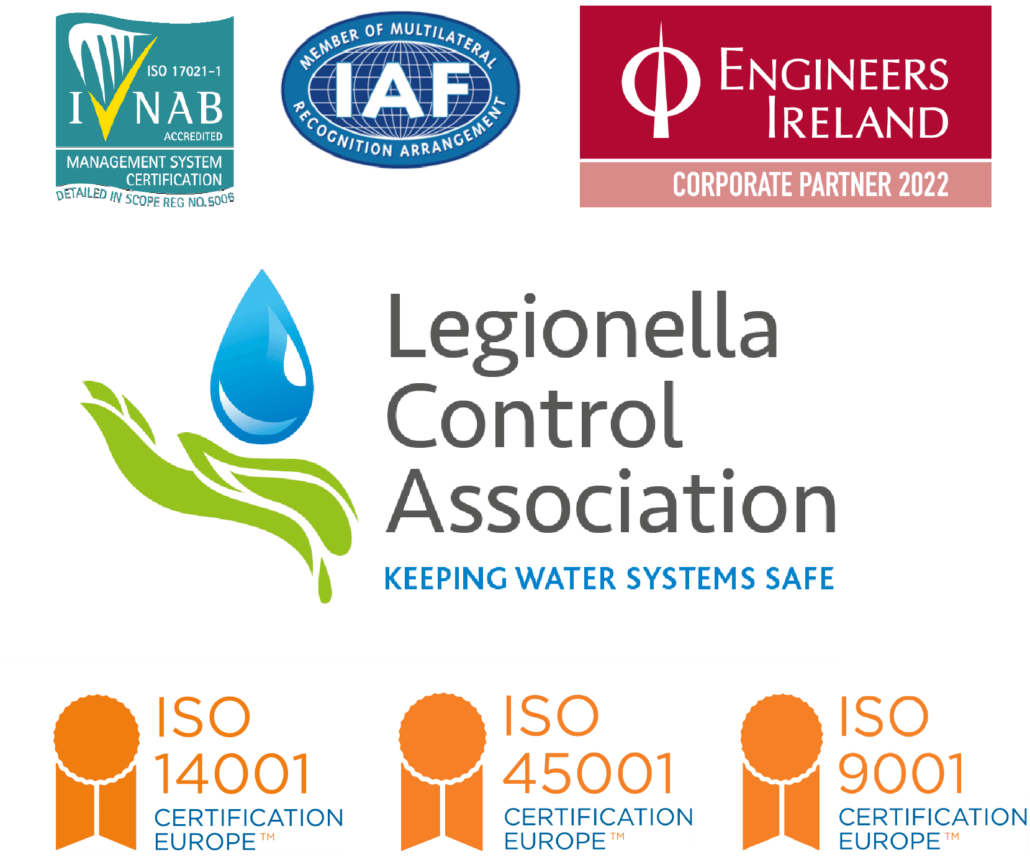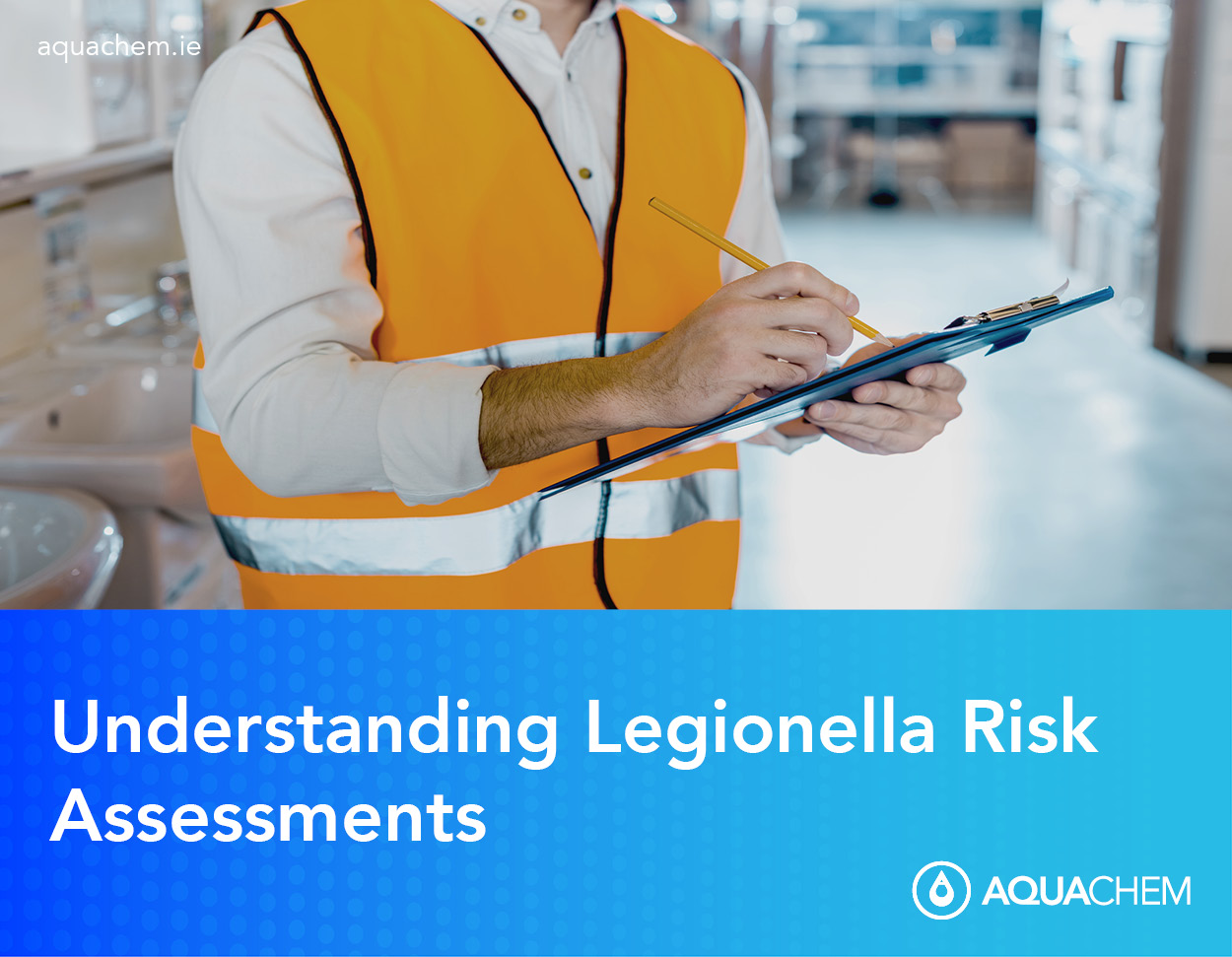 A Legionella Risk Assessment (LRA) is carried out to identify and assess sources of potential risk of Legionella growth in a buildings’ water system.
A Legionella Risk Assessment (LRA) is carried out to identify and assess sources of potential risk of Legionella growth in a buildings’ water system.
In Ireland, a LRA is a legal requirement, outlined in The Safety, Health and Welfare at Work Act 2005 (S.I. No. 10 of 2005) as employers, landlords & premises managers have a duty to understand, and manage, Legionella risk in their workplace.
What is Legionella?
Legionella is a form a bacteria which is found in natural aquatic environments, which means it is impossible to prevent Legionella entering man-made water systems. They are also found in purpose-built water systems, such as cooling towers and evaporative condensers.
Legionella bacteria thrive at temperatures between 20°C and 50°C, when water is below 20°C or above 50°C the bacteria will not grow.
It is vital that this is monitored & controlled as Legionnaires’ disease, a severe form of pneumonia can be caught from this bacterium. It can affect anyone; however, vulnerable people are more susceptible.
The infection is spread through the air from the water source and occurs when tiny droplets of water (aerosol) containing Legionella bacteria are breathed into the lungs. Legionnaires’ disease is treatable when caught early, however if left untreated it can be fatal.
AquaChem’s Microbiologist and Legionella Risk Assessor Pat Reynolds said,
“A Legionella Risk Assessment is a detailed and concise report which identifies the risk relating to Legionella in the water system and management practices at your premises, it is required to prevent the spread of Legionnaires’ disease.
Once the risks are identified we will devise a scheme for eliminating or controlling the risk.
Legionella is easy to control once the correct procedures are in place. While cases of Legionnaires disease are relatively low in Ireland, if that one case is on your premises the repercussions are severe; it’s not worth it.”
The Legionella Risk Assessment
The LRA report will illustrate the risks in the workplace in an informative yet easy to understand format, our process is outlined below:
- We will come on site and make sure a Duty Holder has been appointed,
- We will check all current paperwork and certificates,
- A thorough inspection of the water system will take place, depending on the size this will take from 4 hours – 2 days,
- The risk assessment will be prepared and consist of:
-
- The detailed report including images and our recommendations on each point
- A strategy for the premises outlining weekly / monthly tasks which the Duty Holder will be required to carry out (i.e temperature checking)
- Information on risks and responsibilities
While a Legionella Risk Assessment is a vital document for your business, it is also important to ensure that weekly / monthly records are maintained as these will be critical should anything happen at your place of business.
If you have any further questions or would like any further information, please get in touch with our specialist team.


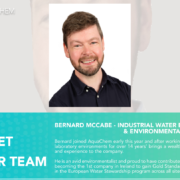
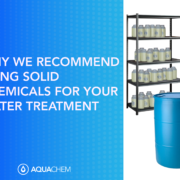
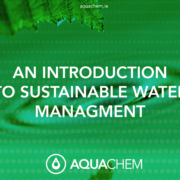
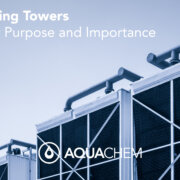
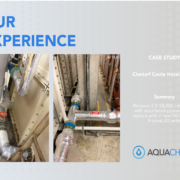
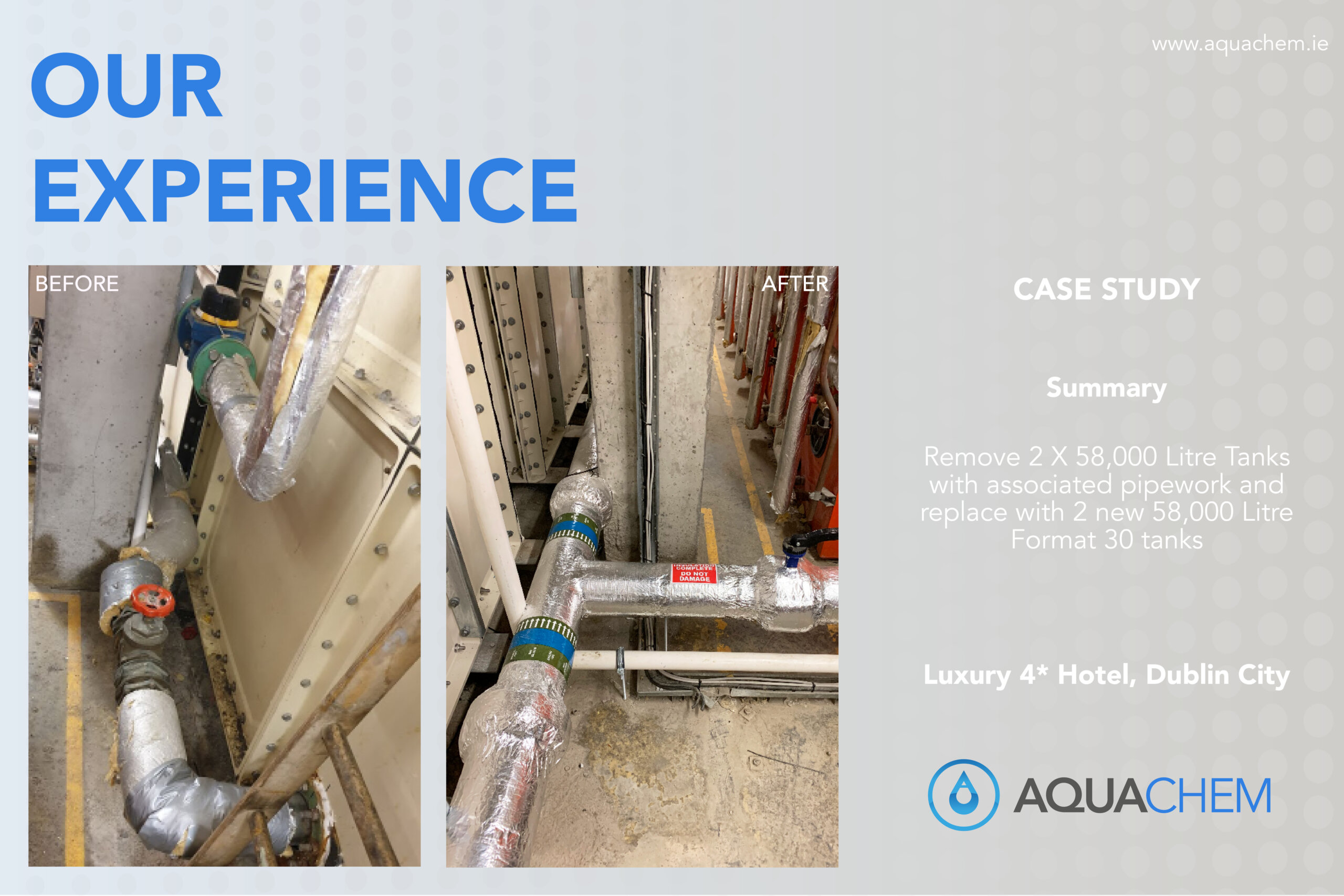
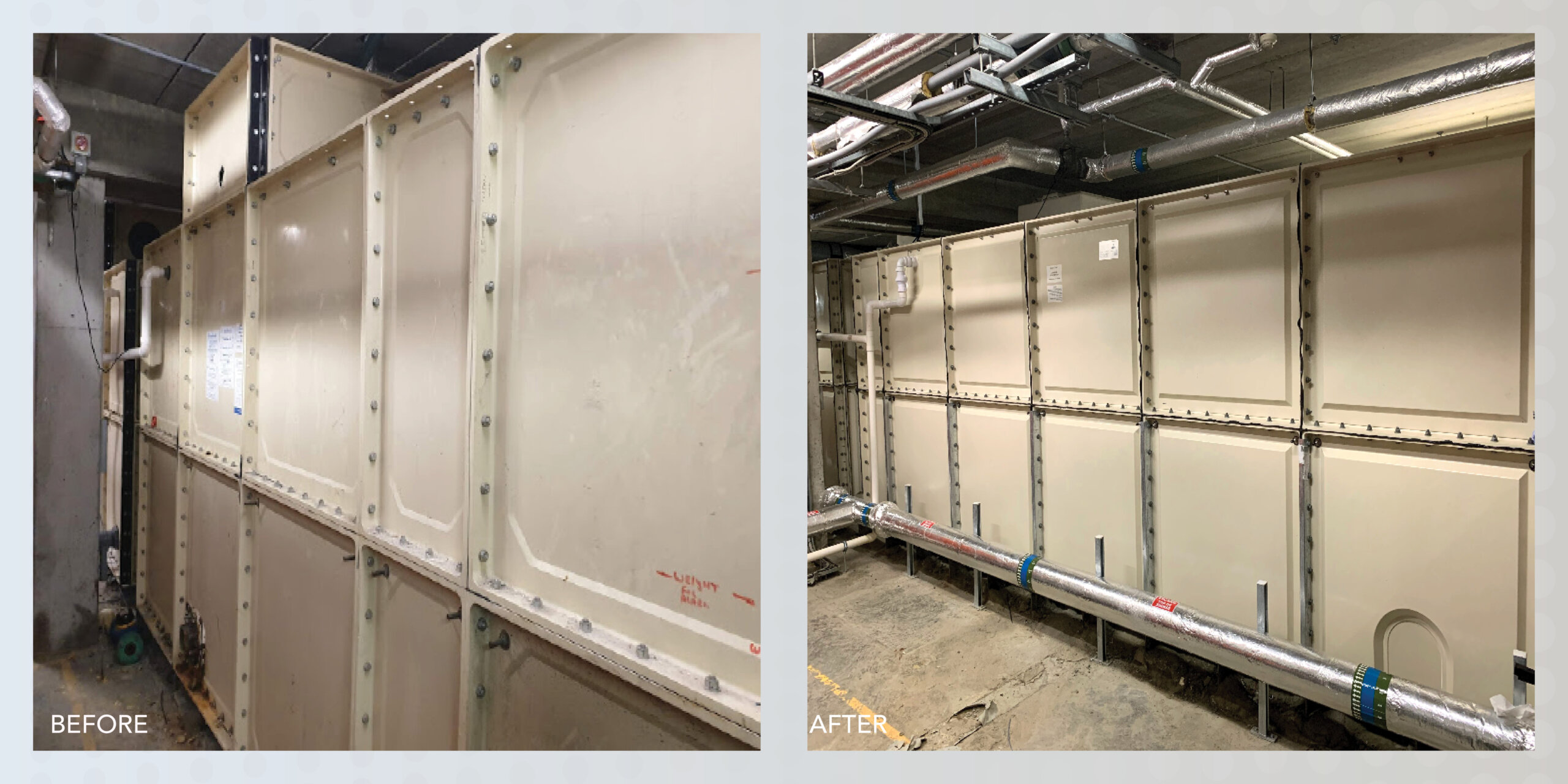
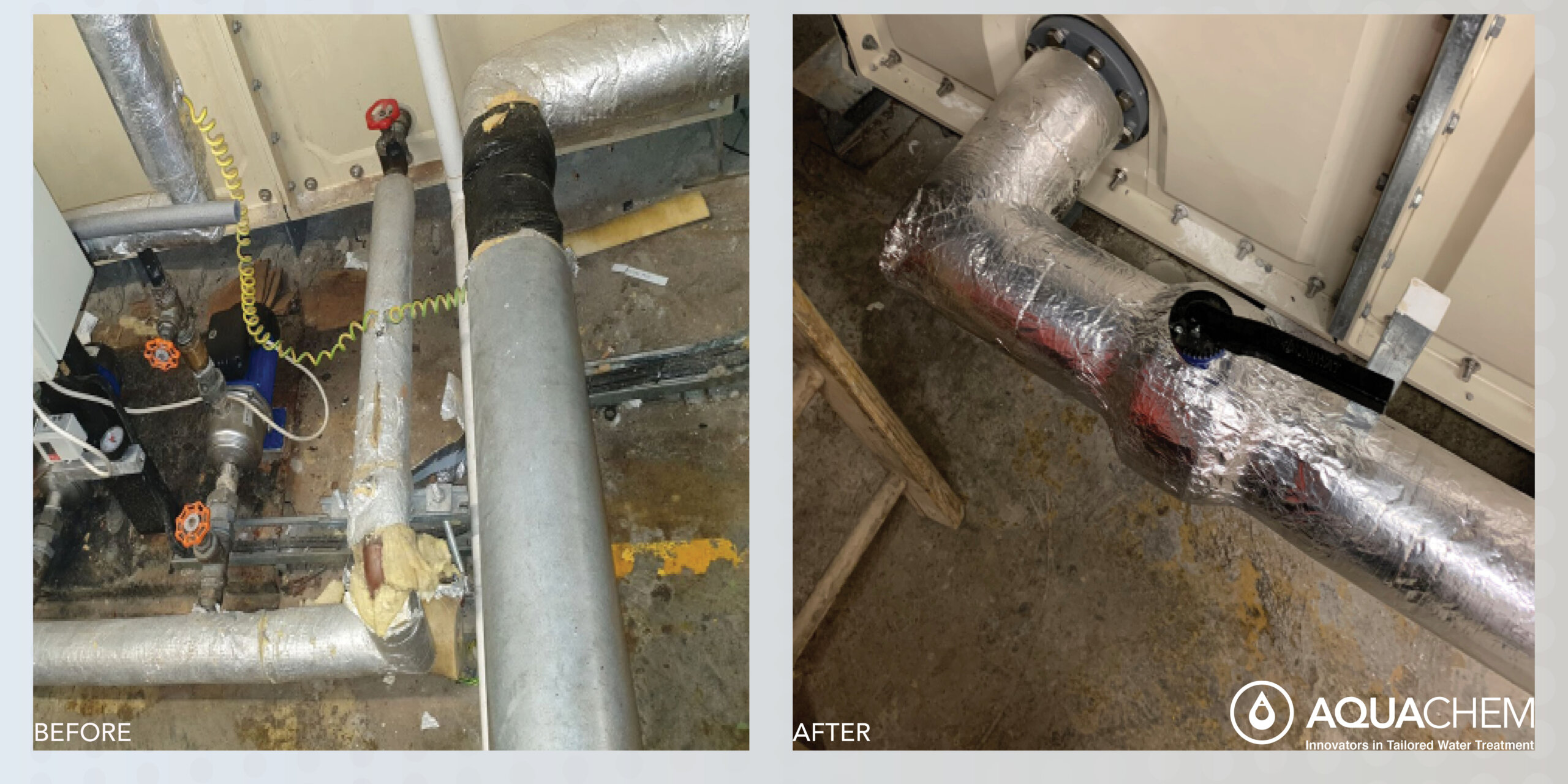

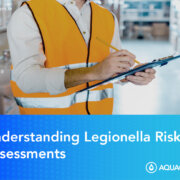
 A Legionella Risk Assessment (LRA) is carried out to identify and assess sources of potential risk of Legionella growth in a buildings’ water system.
A Legionella Risk Assessment (LRA) is carried out to identify and assess sources of potential risk of Legionella growth in a buildings’ water system.